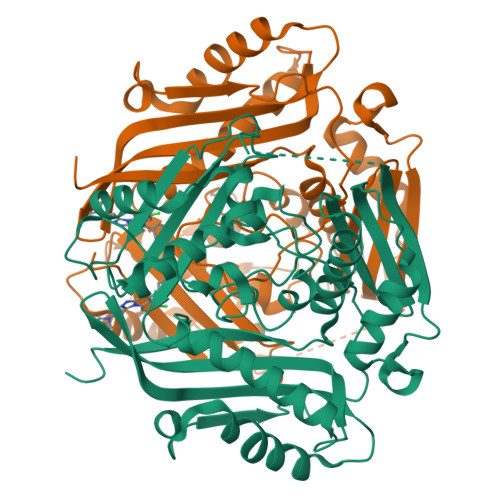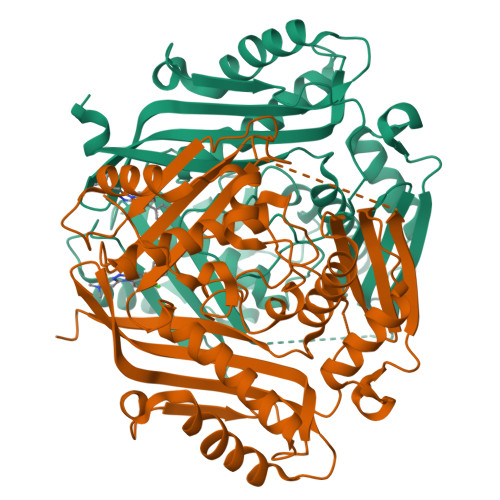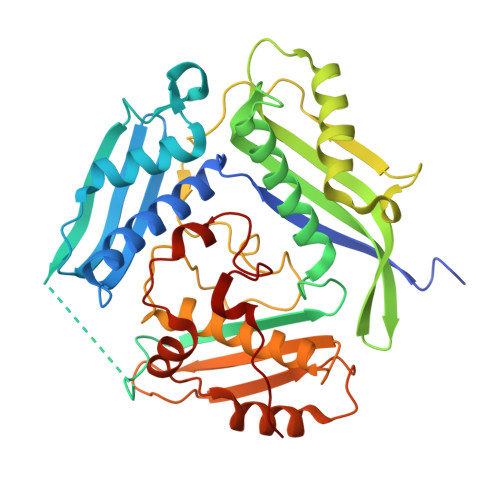Targeting S-adenosylmethionine biosynthesis with a novel allosteric inhibitor of Mat2A.
Quinlan, C.L., Kaiser, S.E., Bolanos, B., Nowlin, D., Grantner, R., Karlicek-Bryant, S., Feng, J.L., Jenkinson, S., Freeman-Cook, K., Dann, S.G., Wang, X., Wells, P.A., Fantin, V.R., Stewart, A.E., Grant, S.K.(2017) Nat Chem Biol 13: 785-792
- PubMed: 28553945
- DOI: https://doi.org/10.1038/nchembio.2384
- Primary Citation of Related Structures:
5UGH - PubMed Abstract:
S-Adenosyl-L-methionine (SAM) is an enzyme cofactor used in methyl transfer reactions and polyamine biosynthesis. The biosynthesis of SAM from ATP and L-methionine is performed by the methionine adenosyltransferase enzyme family (Mat; EC 2.5.1.6). Human methionine adenosyltransferase 2A (Mat2A), the extrahepatic isoform, is often deregulated in cancer. We identified a Mat2A inhibitor, PF-9366, that binds an allosteric site on Mat2A that overlaps with the binding site for the Mat2A regulator, Mat2B. Studies exploiting PF-9366 suggested a general mode of Mat2A allosteric regulation. Allosteric binding of PF-9366 or Mat2B altered the Mat2A active site, resulting in increased substrate affinity and decreased enzyme turnover. These data support a model whereby Mat2B functions as an inhibitor of Mat2A activity when methionine or SAM levels are high, yet functions as an activator of Mat2A when methionine or SAM levels are low. The ramification of Mat2A activity modulation in cancer cells is also described.
Organizational Affiliation:
Oncology Research and Development, Pfizer Inc., San Diego, California, USA.




















